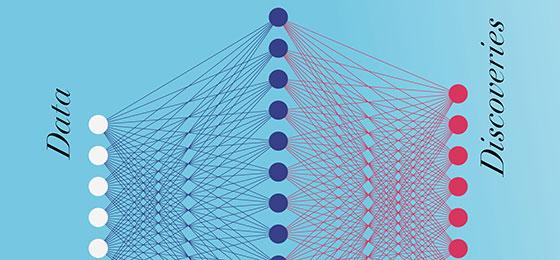Horizons magazine: Science ex machina

Horizons takes a look at the automation of research: using robots to speed up laboratory work, artificial intelligence to process floods of data and algorithms to analyse the scientific literature. Does it work? And is it a good idea?
Even science is being transformed by digitisation. From the health data in biobanks, to the products of particle collisions at CERN, to the entire body of English literature: researchers are drawing on robots and artificial intelligence to master the sheer size of this information. Horizons presents the latest developments in automated science, and examines the promise and limits of machine thinking.
In a second key focus, Horizons introduces photographs and videos made by researchers at Swiss higher education institutions. In conjunction with the SNSF Scientific Image Competition, the magazine's picture editor has selected her personal favourites from over 400 images and 60 videos.
The latest issue of Horizons also tackles the increasing but little noticed encroachment of English in bachelor degree lectures, the placebo effect in altitude training and the benefits of vibrational feedback for users playing musical instruments or pressing virtual buttons.
Additional articles focus on the formula for happy relationships and increasing biological diversity through artificial means. Finally, astrophysicist Kevin Schawinski explains how he classified 70,000 galaxies an hour with the help of citizen scientists, and geographer Peter Messerli talks about his experience chairing the UN experts group for Global Sustainable Development Report (GSDR).
Horizons 113 (June 2017): Machine Science (Article and online magazine)
Horizons reports on the latest news from the world of science and discusses research policy issues of international significance. The Swiss research magazine is published by the Swiss National Science Foundation (SNSF) in collaboration with the Swiss Academies of Arts and Sciences. The magazine appears quarterly in German and French; an English version is available online.
Subscription is free of charge.